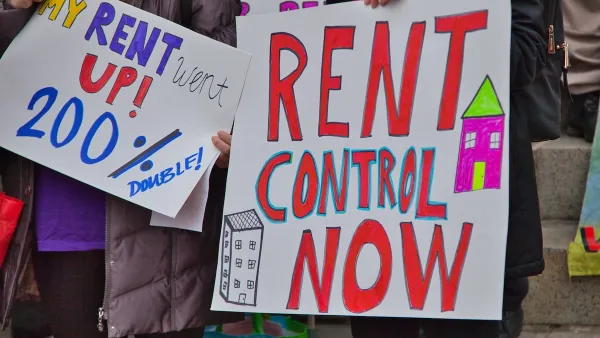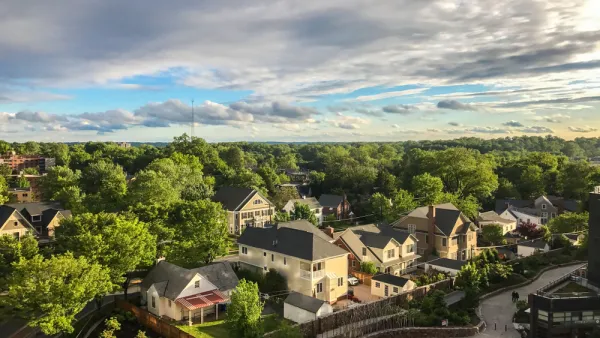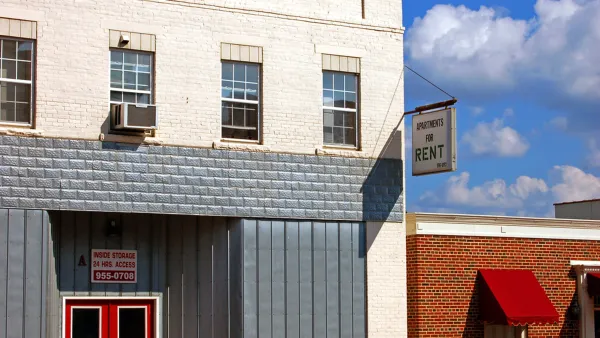One of the nation's most aggressive rent stabilization measures, which caps rent increases at 3 percent regardless of inflation or the age of the building, will become the law in St. Paul.

In an article for the Pioneer Press, Frederick Melo reports the results of a closely watched ballot measure in St. Paul that proposed one of the most sweeping rent stabilization measures of any U.S. city:
St. Paul voters went to the polls Tuesday to approve a ballot measure that will cap residential rent increases at 3 percent annually, across the board and without exception for small landlords or new housing construction.
The measure also implements rent control even for new buildings—a characteristic that supersedes rent control measures in other cities, like New York and Los Angeles..
As noted by Melo, St. Paul is a majority renter city, and insecurity about the cost of housing, which predates the pandemic but has only worsened since the beginning fo 2020, contributed to the strong support for the measure.
Planetizen has been closely watching the debate around St. Paul's ballot measure, including when the debate attracting national media attention in the final days of the campaign.
- Rent Control Debate Heats Up As Renters Continue To Struggle (November 2, 2021)
- Opinion: St. Paul's Proposed Rent Control Law Would Halt New Development (September 24, 2021)
St. Paul Voters Could Pass the Nation's Strictest Rent Stabilization Ordinance (September 10, 2021) - Rent Control Showdown in Minnesota (June 15, 2021)
Additional news coverage of the city's rent control vote are available in an article by Greta Kaul for the MinnPost, Will Parker for the Wall Street Journal (paywall), and Max Nesterak for the Minnesota Reformer.
As reported by Melo in an October 29 article, opponents of the measure, namely "real estate developers, building owners and realtors," outspent supporters of the measure by magnitudes. "That’s nearly $4 million in fundraising for the Sensible Housing Ballot Committee, compared to roughly $213,000 in fundraising for the Keep St. Paul Home campaign and $350,000 for the Home to Stay Minneapolis campaign, according to campaign finance reports filed through mid-October," according to Melo.
A Twitter thread by the Market Urbanism account this morning provides specifics of the rent control measure, including where it outpaces other U.S. cities.
FULL STORY: St. Paul voters approve rent control measure, 53 percent to 47 percent

Analysis: Cybertruck Fatality Rate Far Exceeds That of Ford Pinto
The Tesla Cybertruck was recalled seven times last year.

National Parks Layoffs Will Cause Communities to Lose Billions
Thousands of essential park workers were laid off this week, just before the busy spring break season.

Retro-silient?: America’s First “Eco-burb,” The Woodlands Turns 50
A master-planned community north of Houston offers lessons on green infrastructure and resilient design, but falls short of its founder’s lofty affordability and walkability goals.

Test News Post 1
This is a summary

Analysis: Cybertruck Fatality Rate Far Exceeds That of Ford Pinto
The Tesla Cybertruck was recalled seven times last year.

Test News Headline 46
Test for the image on the front page.
Urban Design for Planners 1: Software Tools
This six-course series explores essential urban design concepts using open source software and equips planners with the tools they need to participate fully in the urban design process.
Planning for Universal Design
Learn the tools for implementing Universal Design in planning regulations.
EMC Planning Group, Inc.
Planetizen
Planetizen
Mpact (formerly Rail~Volution)
Great Falls Development Authority, Inc.
HUDs Office of Policy Development and Research
NYU Wagner Graduate School of Public Service




























